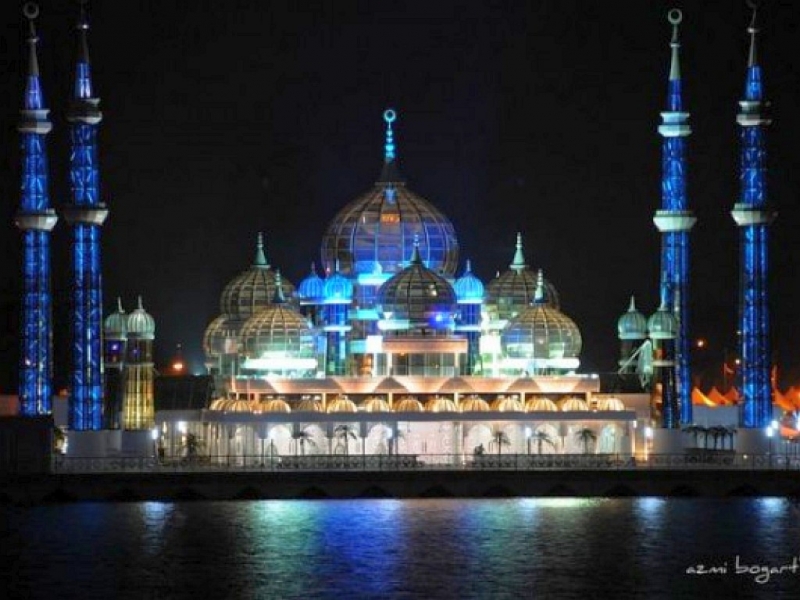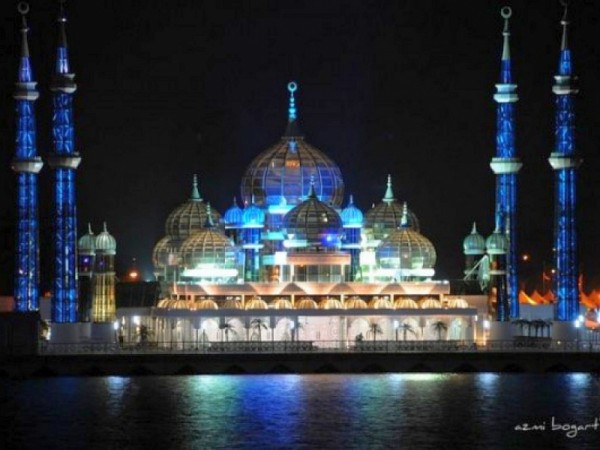
In the name of Allah, we praise Him, seek His help and ask for His forgiveness. Whoever Allah guides none can misguide, and whoever He allows to fall astray, none can guide them aright. We bear witness that there is none worthy of worship but Allah Alone, and we bear witness that Muhammad (s.a.w) is His Messenger and the seal of all His Messengers.
Tomorrow, Muslims all over the world will celebrate the new Hijrah year 1433. There is no better auspicious time to say happy new hijrah to all brothers and sisters. It’s another new leaf in the lives of Muslims, another period of reckoning in the history of the religion and another chapter on how we want to propagate and spread the message.
Though it is only a means of counting which identifies with the religion and assented to by Allah, but we ought to understand that Islam is far more beyound celebrating a date.
Islam like I wont to tell those who have little or no understanding about the religion, it predates the era of Prophet Isa or Musa just like the counting of the Hijri year predates the time prophet Muhammad lived. Unlike the Gregorian calendar, also known as the Western calendar, or Christian calendar was introduced by Pope Gregory XIII, after whom the calendar was named.
It came into place by a decree signed on 24 February 1582, a papal bull known by its opening words Inter gravissimas after which several countries adopted it, the eventual evolution of Hijri was part of the arrangement of Allah in perfecting the religion of Islam even after the life of Prophet Muhammad (s.a.w).
For those who believe in the devine mathematical pattern expressed in the Glorious Quran, it is clear and explicit that Allah had arranged every thing even before Umar bin Khattab (r.a) decreed the counting of Hijrah.
Much as we believe that Allah sometimes uses literary and mathematical styles to prove the authenticity of His words, a careful look at the Quran will reveal that Allah had planned the dates, months and year well before man was made to contrive them. Try check out the word “month” (shahr) in the Quran, it occurs 12 times; check out the word “days” (ayyam/yawmayn), it occurs 30 times, and the word “day” (yawm) occurs 365 times.
In 1959, Abdurrazzaq Nawfal, an Egyptian scholar, noticed some mathematical relations between the frequency of certain words. While writing his book “Al-Islamu Deenun wa Dunya” (Islam: both Religion and World), he noticed that the frequency of the word “Dunya” (World) have exactly the same frequency as the word “Akhirah” (hereafter), 115 times each, in the Quran.
In 1968, while writing another book titled “Alemul Jinni wal Malayika” (Universe of Jinns and Angels), he noticed that the word “Shaytan” (Satan) have exactly the same frequency as the word “Malak” (Angel), 88 times each. These interesting literary symmetry in the frequency of certain words led him to make a more comprehensive study on the numerical structure of the Quran.
Nawfal published his findings in 1983 in a book: “Al-I’cazul Adadiy LilQuranil Kareem” (Numerical Miracle Of the Holy Quran). The book was published by Darul Kitabil Arabiy, Beirut, Lebanon. He also proves the above calculation of number of times the words day, months appear in the Qur’an.
It only goes to show that the number of days and months culminating into year had already been planned by Allah. The Qur’an says: “Soon We will show them our signs in the (farthest) regions (of the earth), and in their own souls, until it becomes manifest to them that this is the Truth. Is it not enough that thy Lord doth witness all things?” (Quran 41:53)
But for us Muslims who know that everything including days, months and the year had already been ordained through Islam, and the fact that He had effected His plans by actualising the counting of the days, months and year the way He wanted, we can always praise His Majesty.
People have argued back and forth on the celebration of the new Hijri. While scholars differ in their opinions that it the practice lacks evidence from the Qur’an and hadiths, others believe that it should be celebrated. In this crazy world, where a massive wisdom is required to do jihad without going against the bounds of Allah, where we need to show all the goodness of Islam, we owe ourselves a duty to do the right thing with amazing wisdom.
The occasion of Hijrah, no doubt, kindle the light of hope in the hearts of the early Muslims who set a shinning example for all Muslims, in every generation, to emulate. We should remember the great sacrifices that the Prophet (s.a.w) and his companions paid in order to spread the message of the religion of Islam.
It should remind us of the great journey the Prophet (s.a.w) and his companions when they migrated from Makkah to Madinah and the pains and threats they encountered on their way to Madinah. At mosques and Islamic gatherings, we should talk about the Prophet’s Hijrah from Makkah to Madinah that took place in the year 622 CE.
We should talk about its meaning and significance and we should also talk about the general concept of Hijrah in Islam. The Arabic word Hijrah is often translated as “exile, exodus, flight or migration”. Its meaning is, however, much more dynamic and active. It means “to leave, to move, to shun and to quit”.
We can apply it to our daily lives by quiting all kinds of sins, by departing from ignorance and supertitions and move to knowledge and light. We can shun all kinds of oppression, enslavements, injustices and dwell in the service of Allah. We can move away from politics of division and ethnocentrism to harmony and unity. We can depart from the path of hellfire to salvation, we can now migrate to the right path.
As momentous and as crucial as the event of the ‘Hijrah’ or migration of the Prophet (s.a.w) and the believers from Makkah to Madinah, it only reminds us of the need to change our attitude in the service of Allah.




